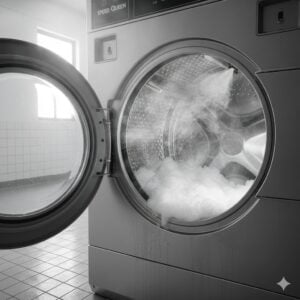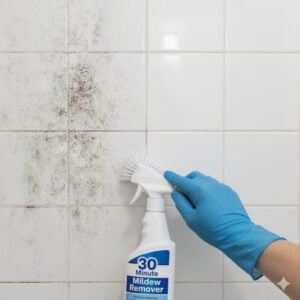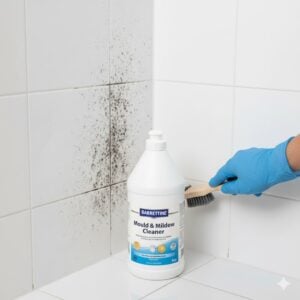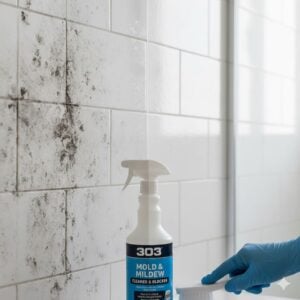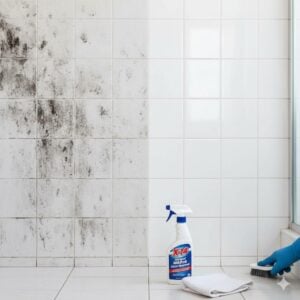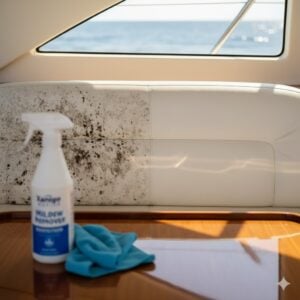Humidity dubai is one of the main reasons many residents struggle with mold growth, musty odors, and indoor discomfort. With the city’s location along the Arabian Gulf and its year-round warm climate, humidity levels can easily climb above 80% — especially during summer. While humidity helps keep the air from feeling too dry, excessive moisture creates the perfect breeding ground for mold and bacteria. For homeowners and tenants, understanding how to manage humidity dubai is essential for maintaining a clean, healthy, and comfortable living space. In this article, we’ll explore why humidity is so high in Dubai, how it causes mold, and most importantly, how you can prevent mold growth in your home.
Table of Contents
ToggleWhy Humidity in Dubai Is So High
Dubai’s high humidity comes from its geography and climate. The city sits right on the coast of the Arabian Gulf, where warm sea water continuously evaporates, adding moisture to the air. Unlike desert regions farther inland, coastal cities like Dubai experience a combination of heat and humidity, especially in summer months between June and September. During this period, even nighttime temperatures stay around 35°C, and humidity can reach 90%. The wind often carries moist air inland, while the lack of rainfall prevents natural cooling. This results in thick, sticky air that can feel almost suffocating — and for buildings, it creates the ideal environment for mold.
How Humidity Leads to Mold Problems
Mold spores are present everywhere, but they only grow when conditions are right — mainly warmth and moisture. In Dubai’s humid environment, both conditions exist almost all year long. When indoor humidity levels rise above 60%, condensation begins to form on surfaces like windows, walls, and ceilings. Even small leaks or poorly ventilated spaces allow moisture to build up, and within 24–48 hours, mold can start growing. Bathrooms, kitchens, air conditioning ducts, and storage areas are particularly vulnerable. Once mold appears, it spreads quickly and releases spores into the air, which can cause allergies, respiratory issues, and unpleasant smells.
Signs That Humidity Is Causing Mold in Your Home
Not all signs of mold are immediately visible. Sometimes you can smell it before you see it. Common signs include:
- A persistent musty or damp odor, especially in bathrooms, closets, or near AC vents.
- Dark or greenish spots on ceilings, tiles, or paint near corners and edges.
- Condensation on glass, windows, or mirrors even when air conditioning is running.
- Peeling paint, bubbled wallpaper, or warped wooden furniture.
- Frequent allergic reactions or coughing indoors that improve when you leave the house.
If you notice two or more of these signs, it’s likely that excess humidity is feeding hidden mold growth somewhere inside your home.
Measuring Humidity Indoors
Before tackling mold prevention, it’s important to measure humidity levels. A simple digital hygrometer can help you monitor indoor humidity. Ideally, indoor levels should stay between 40% and 55%. Anything higher means your home is too moist. You can place hygrometers in rooms that often feel stuffy or smell musty, such as bathrooms or bedrooms with limited ventilation. Tracking humidity helps you spot patterns — for instance, if levels rise at night when windows are closed or after long showers.
Effective Ways to Control Humidity and Prevent Mold
Managing humidity dubai requires daily habits and a few long-term solutions. Below are practical steps that homeowners and tenants can take to prevent mold from forming or returning.
1. Improve Ventilation
Good airflow is the most effective way to reduce moisture buildup. Keep doors and windows open when possible, especially during cooler parts of the day or after showers. Install exhaust fans in bathrooms and kitchens to draw out moist air. Make sure your air conditioning vents are not blocked by furniture or curtains, as restricted airflow can lead to condensation behind walls.
2. Maintain Air Conditioners
Air conditioners in Dubai often run for many hours, and without regular maintenance, they can become sources of mold themselves. Dust and moisture inside AC ducts create perfect breeding grounds for spores. Schedule professional AC cleaning at least twice a year to remove dirt, mold, and bacteria. Bio-On Cleaning Services offers specialized AC duct cleaning using eco-friendly methods that not only sanitize your system but also improve air quality and reduce humidity indoors.
3. Use Dehumidifiers
In areas where humidity remains high even with ventilation, a dehumidifier is an excellent solution. These devices extract moisture from the air and collect it as water, reducing overall humidity. Small portable dehumidifiers are ideal for bedrooms, while larger models work well for living areas. For best results, empty the water tank daily and clean filters regularly.
4. Fix Leaks and Water Sources
Even a tiny leak under the sink or behind a wall can increase indoor humidity. Inspect plumbing, roof joints, and AC drain lines regularly. If you notice water stains or peeling paint, repair leaks immediately. For homes near the coastline, saltwater air can also corrode metal pipes faster, so frequent inspection is essential. A professional cleaning and maintenance service can identify hidden leaks that may not be visible from the surface.
5. Keep Surfaces Dry
Wipe wet areas immediately after use, especially in bathrooms and kitchens. Avoid leaving wet towels or mops indoors, as they release moisture into the air. Clean and dry shower curtains regularly, as they often collect mold in the folds. In wardrobes or storage rooms, consider placing moisture-absorbing products like silica gel packs or activated charcoal to maintain dryness.
6. Choose Mold-Resistant Paint and Materials
When renovating or repainting, use anti-mold or moisture-resistant paint on walls and ceilings. These paints contain special additives that prevent spores from attaching and growing. Similarly, using water-resistant materials like vinyl flooring or tiles in humid areas reduces mold risk over time.
7. Regular Deep Cleaning
Regular deep cleaning prevents dirt and moisture buildup that encourages mold growth. Vacuum with HEPA filters to trap fine dust and spores, and use mild eco-friendly cleaning agents such as vinegar solutions for tiles and walls. Bio-On Cleaning Services offers deep cleaning packages designed specifically for high-humidity environments in the UAE, ensuring your home remains fresh and safe year-round.
Health Effects of Mold Caused by Humidity
Mold doesn’t just harm your home — it affects your health too. Prolonged exposure to mold spores can lead to symptoms such as sneezing, nasal congestion, coughing, and eye irritation. In some cases, it may worsen asthma or cause skin allergies. People with weak immune systems or chronic conditions are especially sensitive. Because humidity allows mold to thrive, controlling moisture is essential for maintaining healthy indoor air quality. Remember that even if mold isn’t visible, spores can still circulate in the air and trigger reactions.
Why Professional Help Is Important
DIY solutions work for small humidity and mold issues, but larger or recurring problems often need professional intervention. Professionals use tools to detect hidden moisture inside walls or ceilings, perform air quality testing, and apply specialized mold removal treatments. At Bio-On Cleaning Services, our mold remediation process includes inspection, cleaning, drying, and long-term prevention using eco-friendly methods. Our team ensures that not only is visible mold removed, but also the conditions that caused it. All pricing is transparent and verified with our experts before the work begins, ensuring you get affordable, effective service.
Preventing Mold During Humid Seasons
Summer and post-rain seasons are when humidity dubai reaches its peak. During these months, monitor humidity daily and adjust your environment proactively. Keep AC systems serviced before summer starts, use ventilation fans regularly, and avoid drying clothes indoors. If you live in older buildings or coastal areas, schedule professional inspections twice a year to detect early signs of mold or dampness. Prevention is always cheaper and easier than removal.
Conclusion
Managing humidity dubai is not just about comfort — it’s about protecting your home and health from mold. High humidity levels make mold growth almost unavoidable without preventive care. Simple steps like improving ventilation, maintaining AC systems, using dehumidifiers, and scheduling regular deep cleaning can dramatically reduce risks. If you already notice musty smells, condensation, or mold stains, professional help may be necessary to prevent further spread. Bio-On Cleaning Services specializes in tackling humidity-related mold issues across the UAE, offering expert-verified, eco-friendly solutions at affordable rates. To get personalized advice or book a mold inspection, click the contact button on the right middle of this article — and let us help you breathe cleaner, healthier air in your home today.








